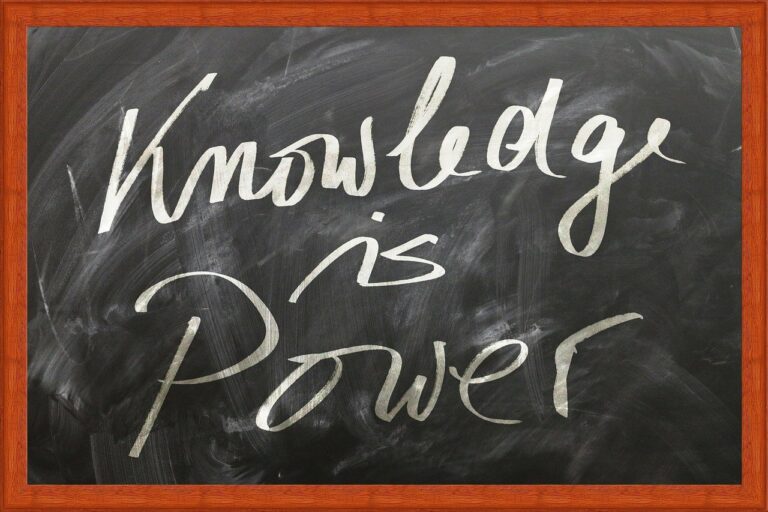The Role of Feedback in Enhancing Tutoring Effectiveness
betbhai9, radhe exchange id, my laser 247.com login:Tutoring is an essential tool for academic success, providing students with personalized attention and support to help them excel in their studies. However, tutoring effectiveness can be greatly enhanced with the use of feedback. Feedback plays a crucial role in guiding students towards their learning goals, helping them identify their strengths and areas for improvement. In this article, we will explore the importance of feedback in tutoring and how it can help students reach their full potential.
Why is Feedback Important in Tutoring?
Feedback is a powerful tool in tutoring as it provides students with valuable information on their progress and performance. It helps students understand where they stand in relation to their learning objectives and allows them to adjust their study strategies accordingly. By receiving feedback, students can identify their strengths and weaknesses, enabling them to focus on areas that need improvement.
Types of Feedback in Tutoring
There are different types of feedback that tutors can provide to students, including:
– Corrective feedback: This type of feedback highlights errors in students’ work and provides suggestions for improvement.
– Positive feedback: Positive feedback reinforces students’ strengths and motivates them to continue working hard.
– Evaluative feedback: Evaluative feedback assesses students’ performance against specific criteria and provides guidance on how they can meet their learning goals.
The Role of Feedback in Enhancing Learning
Feedback plays a crucial role in enhancing learning by providing students with the information they need to progress. It helps students reflect on their work, identify areas for improvement, and develop effective study strategies. By receiving feedback, students can monitor their progress and take steps to improve their academic performance.
The Impact of Timely Feedback
Timely feedback is essential in tutoring as it allows students to incorporate the feedback into their learning immediately. When students receive feedback promptly, they can address any issues or misconceptions before they become ingrained. Timely feedback also helps students stay on track with their learning objectives and prevents them from falling behind.
Creating a Feedback Loop
In order to maximize the effectiveness of feedback in tutoring, it is important to create a feedback loop. This involves a continuous cycle of feedback, reflection, and action, where students receive feedback, reflect on their performance, and take action to improve. By creating a feedback loop, students can continuously monitor their progress and make adjustments to their study strategies as needed.
FAQs
Q: How often should tutors provide feedback to students?
A: Tutors should provide feedback to students regularly, ideally after each tutoring session. This allows students to incorporate the feedback into their learning immediately and stay on track with their academic goals.
Q: What are some strategies for providing effective feedback in tutoring?
A: Some strategies for providing effective feedback in tutoring include being specific and constructive, focusing on both strengths and areas for improvement, and encouraging students to reflect on their performance.
Q: How can students use feedback to improve their academic performance?
A: Students can use feedback to improve their academic performance by identifying areas for improvement, developing effective study strategies, and monitoring their progress towards their learning goals.
In conclusion, feedback plays a crucial role in enhancing tutoring effectiveness by providing students with valuable information on their progress and performance. By incorporating feedback into their learning, students can identify their strengths and weaknesses, adjust their study strategies, and reach their full potential. Ultimately, feedback is a powerful tool that can help students excel in their studies and achieve academic success.







